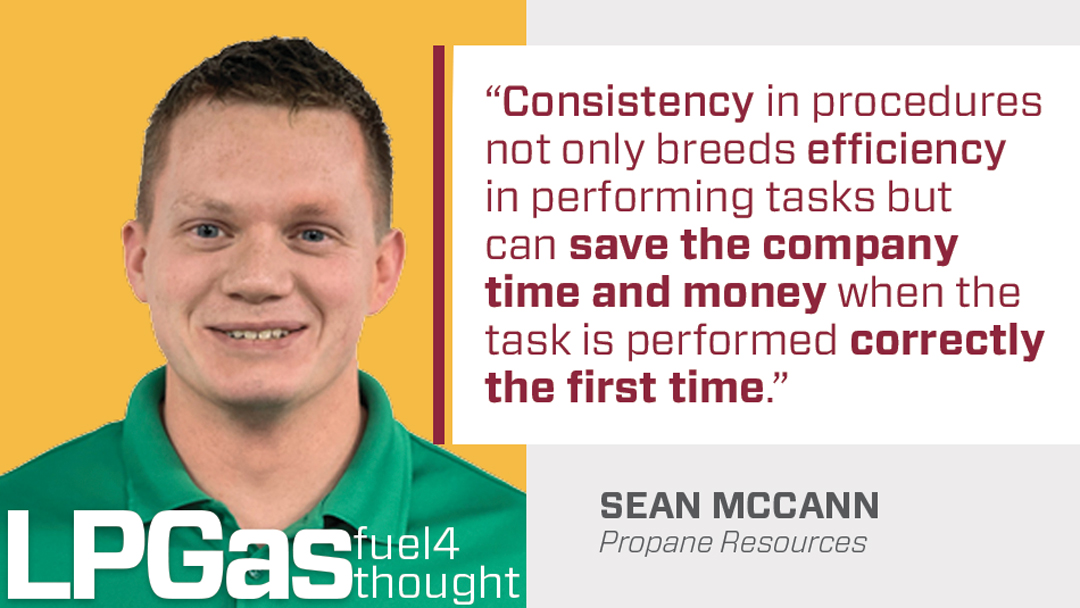In the Know: Implement standard operating procedures
In the Know is a monthly partnership between LP Gas and Propane Resources. Our focus this month is on creating standard operating procedures to improve efficiency, addressed by financial analyst and consultant Sean McCann.
QUESTION: What’s one way a propane company can improve operational efficiency?
ANSWER: If your business is running a little rough around the edges, and you want some simple ideas to improve and refine your efficiency, let’s talk about why you should implement a standard operating procedure (SOP) for daily tasks.
Let this be clear: The most effective form of an SOP is one that is written and treated as internal company law. There can be no ambiguity in the wording of a written procedure, whereas verbal conveyance is subject to human error.
A well-developed SOP should encompass a specific task, explained from start to finish, including a process with steps, descriptions and possibly images to detail the rights and wrongs of performing the task to satisfactory completion. In theory, a new employee should be able to, within reason, use a proper SOP to perform a task to the company standard without assistance. SOPs are especially helpful during an unexpected employment change.
Take the process of inputting new customer information into your system of tracking. If using a computer system, an SOP should include screenshots with each step and additional details explaining the purpose or reasoning behind steps as necessary. The same method should be applied to field tasks. A written guide explaining the steps and procedures of completing a process or task from start to finish should eliminate any excuse for failure to complete a task to the company standard.
Training with SOPs
Humans are creatures of habit and heavily influenced by first impressions.
When a seasoned employee is training a new employee, the seasoned employee often unloads an abundance of knowledge and experience or, in some cases, a lack thereof upon that new employee in a short period of time. The quality of training received during this impressionable period effectively determines the quality of a new employee, which affects the image and effectiveness of your company. If training is conducted solely through the verbal or physical demonstration of a senior employee, bad habits, shortcuts and knowledge gaps may be transposed to the new employee. These negative influences will solidify into the new employee’s work ethic and continue to degrade the overall effectiveness of the company.
That is why it is so important to train a new employee correctly or even retrain an existing employee with step-by-step procedural doctrine. Understanding the reason behind each step can reinforce the importance of the process, maintain process integrity and eliminate process degradation, which could result in accidents, ineffective work or detrimental mistakes. Liability and fault could be avoided in the case of accidents in which an SOP was not followed.
Adherence to an SOP creates an atmosphere of consistency and routine within the daily work cycle. Consistency in procedures not only breeds efficiency in performing tasks but can save the company time and money when the task is performed correctly the first time.
It is important not only to follow but periodically review your SOPs. An SOP can become outdated as technology, equipment and safety conditions evolve. It is only useful as long as you use it and take care of it.
Sean McCann is a financial analyst consultant at Propane Resources. He can be reached at sean@propaneresources.com.

















